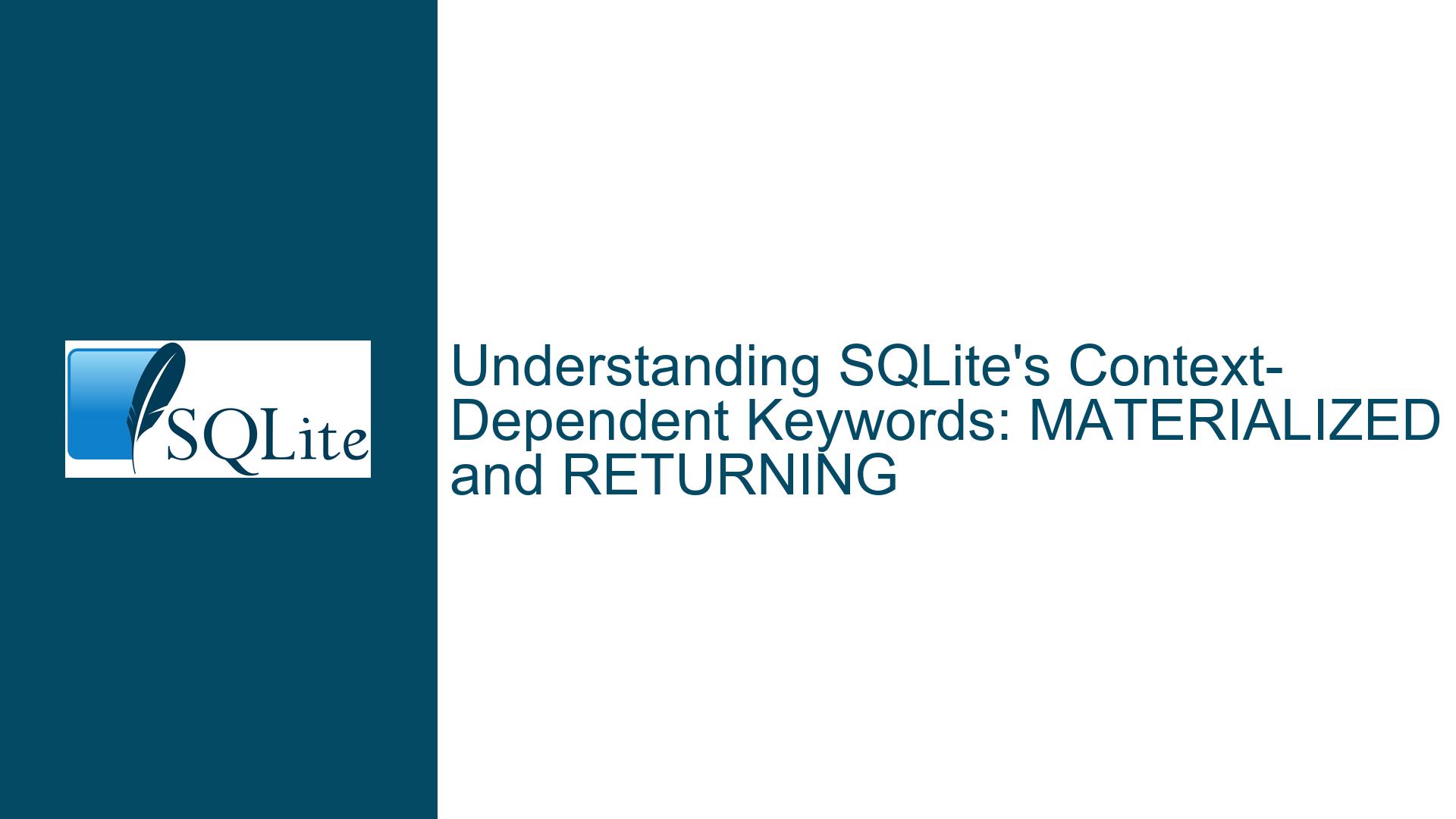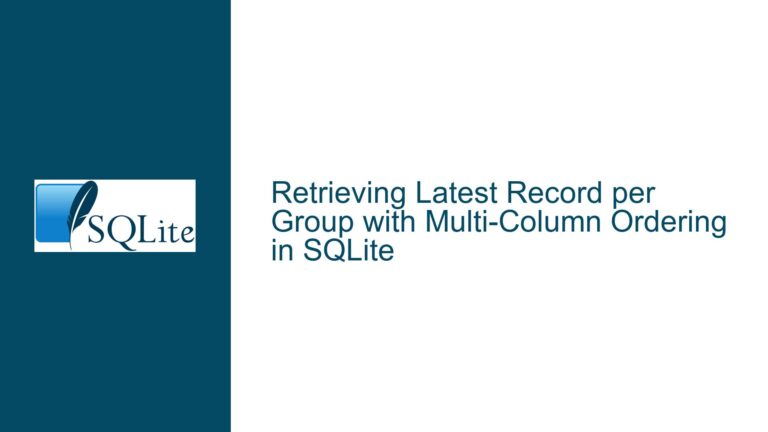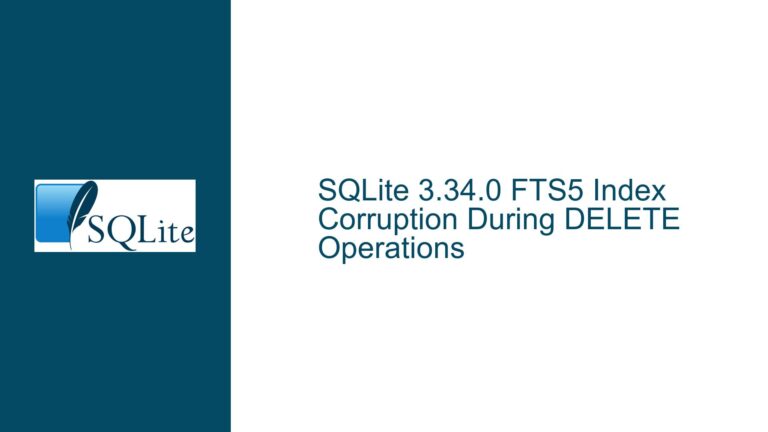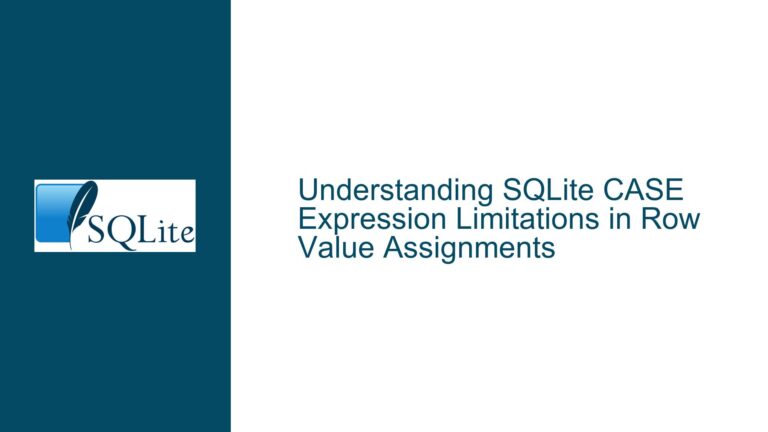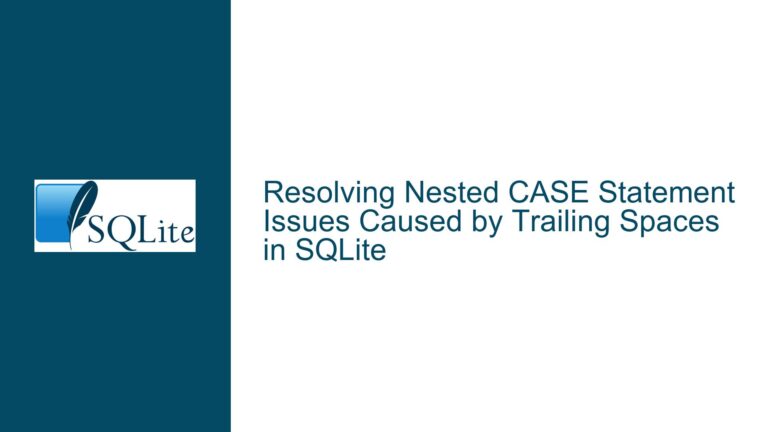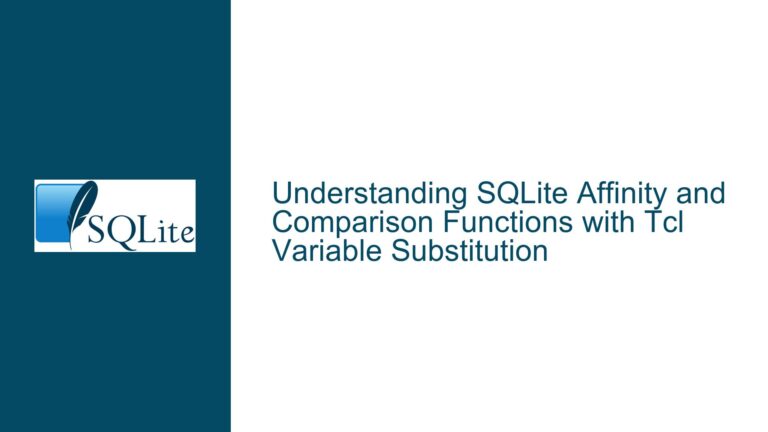SQLite’s Context-Dependent Keywords: MATERIALIZED and RETURNING
SQLite’s Context-Dependent Keyword Handling for MATERIALIZED and RETURNING
SQLite, known for its lightweight and efficient database management, employs a unique approach to handling certain keywords that are not part of its standard keyword list. Keywords like MATERIALIZED and RETURNING are treated as context-dependent, meaning they are recognized as keywords only in specific syntactic positions within SQL statements. This approach ensures backward compatibility while maintaining the integrity and functionality of SQLite’s parsing mechanisms.
The MATERIALIZED keyword is primarily used in Common Table Expressions (CTEs) within WITH clauses. It instructs SQLite to materialize the result set of the CTE, which can be beneficial for performance optimization in complex queries. On the other hand, the RETURNING clause is used in INSERT, UPDATE, and DELETE statements to return the modified rows, providing a powerful tool for developers to immediately access the results of their data manipulation operations.
Despite their utility, these keywords are not listed in SQLite’s official keyword list, and functions like sqlite3_keyword_name() do not enumerate them. This can lead to confusion among developers who expect these keywords to be treated uniformly across all contexts. However, SQLite’s design philosophy prioritizes backward compatibility, ensuring that existing applications continue to function without modification. This context-dependent keyword handling allows SQLite to introduce new features and syntax without disrupting legacy code.
Interrupted Write Operations Leading to Index Corruption
One of the potential issues arising from the misuse or misunderstanding of context-dependent keywords like MATERIALIZED and RETURNING is the risk of interrupted write operations, which can lead to index corruption. When a keyword is not recognized due to its context-dependent nature, it may be misinterpreted as an identifier, leading to syntax errors or unintended behavior in SQL statements. This can be particularly problematic in scenarios where write operations are involved, as an interrupted or incorrectly parsed statement can leave the database in an inconsistent state.
For instance, if the RETURNING clause is not properly recognized in an UPDATE statement, the operation might fail to return the expected results, causing the application to proceed without the necessary data. Similarly, if the MATERIALIZED keyword is not correctly interpreted in a WITH clause, the query optimizer might not materialize the CTE as intended, leading to suboptimal query performance or even incorrect results.
These issues are compounded in environments where power failures or other interruptions can occur. An interrupted write operation, especially one involving complex queries with context-dependent keywords, can result in partial updates or corrupted indexes. This underscores the importance of understanding SQLite’s handling of these keywords and ensuring that they are used correctly in SQL statements.
Implementing PRAGMA journal_mode and Database Backup
To mitigate the risks associated with context-dependent keywords and ensure the robustness of SQLite databases, developers should implement best practices such as using PRAGMA journal_mode and maintaining regular database backups. PRAGMA journal_mode is a powerful feature in SQLite that controls how transactions are logged, providing mechanisms to recover from interruptions and maintain data integrity.
Setting the journal_mode to WAL (Write-Ahead Logging) can significantly enhance the durability and concurrency of SQLite databases. WAL mode allows multiple readers and a single writer to operate simultaneously without blocking each other, reducing the likelihood of write interruptions. Additionally, WAL mode provides a more efficient recovery mechanism in the event of a crash, as the write-ahead log can be used to replay transactions and restore the database to a consistent state.
Regular database backups are another critical practice for safeguarding against data loss and corruption. SQLite provides several methods for creating backups, including the use of the .backup command in the SQLite command-line interface and the sqlite3_backup API in application code. These tools allow developers to create consistent snapshots of the database, which can be restored in the event of a failure.
In addition to these technical measures, developers should also adopt a disciplined approach to writing and testing SQL statements involving context-dependent keywords. This includes thoroughly understanding the syntax and usage of keywords like MATERIALIZED and RETURNING, as well as employing comprehensive testing strategies to identify and address potential issues before they impact production systems.
By combining these practices with a deep understanding of SQLite’s context-dependent keyword handling, developers can ensure the reliability, performance, and integrity of their databases, even in the face of unexpected interruptions or complex query requirements. This holistic approach not only addresses the immediate challenges posed by context-dependent keywords but also contributes to the overall resilience and maintainability of SQLite-based applications.
